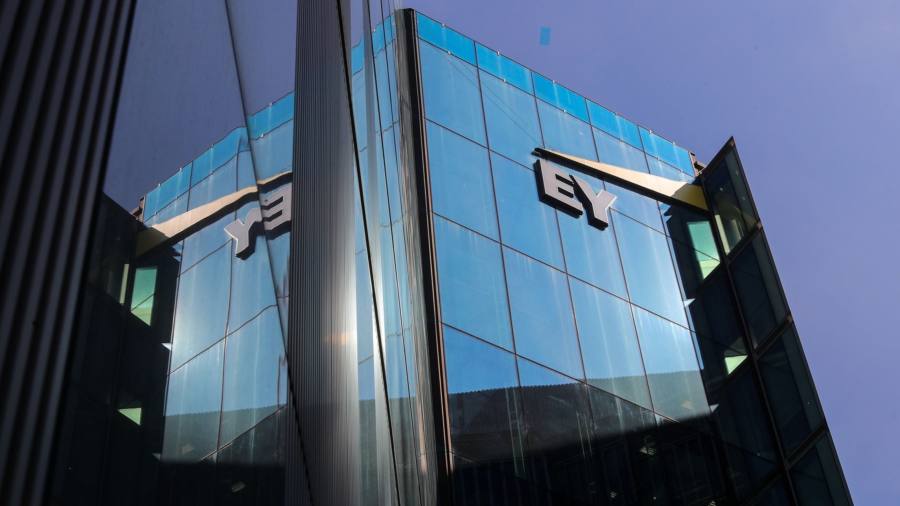
EY’s feuding leaders said they were making progress in talks aimed at reviving the company’s plan to split in two, amid concern from clients about the future shape of the firm.
The joint statement sent to the Big Four accounting firm’s 13,000 partners on Friday marked a break from weeks of conflicting messages from the global leadership and EY’s US business, whose chair, Julie Boland, called a halt to planning for the split earlier this month.
Boland and Carmine Di Sibio, EY’s global chair, said they were “making progress on the key elements needed to move forward on Project Everest”, using EY’s code name for the plan to spin off its consulting business and large chunks of its tax practice into a new company. The statement did not provide details.
The US leadership is fighting to keep more tax and transaction advisory work for the ongoing EY business to support its audit business and bolster the financial strength of the firm, following significant opposition to the deal from audit leaders.
“We are continuing to work towards a transaction,” Boland and Di Sibio wrote in the memo also signed by representatives of EY’s European and Asia-Pacific businesses. “The transaction is very complicated and we agree it is critical that we get the key elements right.”
The message followed talks in Palo Alto this week where Di Sibio, Boland and EY’s other top executives met in an effort to resolve the impasse, which has caused consternation among partners and staff.
When Project Everest was conceived last year, EY’s global leadership had expected to put the split to a vote of partners in each national member firm as early as October 2022. The deal would free both sides of the firm from conflict-of-interest restrictions that prevent EY selling consulting services to companies it audits, its proponents say.
Boland told the Financial Times last week she had paused work on Everest in part to limit the escalating costs while critical details remained to be hammered out. Di Sibio later that day sent a solo message to partners saying he believed they had a “right” to vote on a split.
Friday’s memo acknowledged concerns among EY’s clients as the infighting has spilled into public view and the future shape of the firm remained unresolved.
“We know many of you are receiving a larger volume of client questions, particularly in relation to [new business] pursuits,” the leaders wrote. They told partners to refer to talking points on Everest that were circulated internally this month, or to call on senior leaders to help.
One US tax partner said they knew of at least one multiyear tax contract that EY would have expected to win but that went to a rival firm because of the uncertainty over how much expertise would remain after the split.